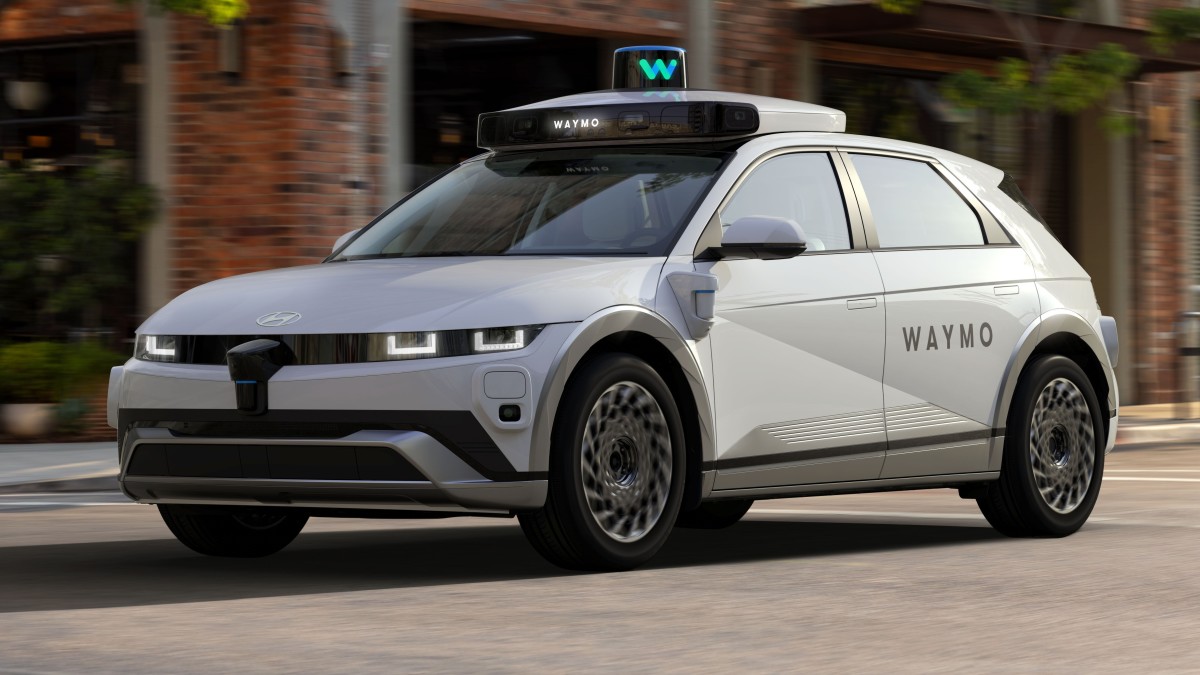Leonardo Da Vinci saw this coming.
Back in the 15th century the artist, scientist and inventor designed a self-propelled, three-wheeled cart powered by coiled springs and featuring preprogrammed steering and a braking system.
The cart it is believed to be the first autonomous vehicle, and ever since then humans have been working hard to ensure the driving experience is untouched by human hands.
Yes, you’ve probably been hearing for a long time about how driverless cars are going to leap straight out of the science fiction flicks right into your garage, but analysts at McKinsey say this is really happening now.

Hyundai
“The age of autonomous vehicles is no longer a distant promise — it’s here,” the consultancy said in a recent report.
“Today’s early fleets of AVs point to a future in which harried commutes turn into productive hours, jammed intersections into orchestrated traffic flows, and all roads into safer corridors.”
Companies investing billions in AVs
Shared autonomous vehicles, which are AVs that are part of a ride-sharing or car-sharing service, now operate in more than 10 cities worldwide, including Beijing, Oslo, Phoenix, and San Francisco, McKinsey says.
More deployments are planned in other regions as AVs with Level 4 capabilities—those that can handle most functions without human intervention—become increasingly sophisticated, the firm said.
Companies have invested billions in autonomous vehicles, with more than $58 billion in total funding over the past 10 years and more than $12.7 billion in 2021 alone, the peak year for investment.
However, venture investors have become reportedly less enthusiastic this year on autonomous-driving tech.
So far this year, investment into VC-backed AV startups has totaled only $1.1 billion, according to Crunchbase, down from last year’s $12.1 billion and from the $5.9 billion these companies raised in 2023.
Last year, the biggest round in the space went to autonomous-vehicle company Waymo, which raised a $5.6 billion round in October from Google parent Alphabet. GOOGL
Waymo recently hired four lobbyists from a local firm, Axios reported, a sign that the company is gearing up to push for a green light to test — and eventually launch — its autonomous vehicles in Minnesota.
“The age of autonomous vehicles is no longer a distant promise—it’s here.”
McKinsey report
“We want to serve Minnesotans in the future,” Waymo spokesperson Ethan Teicher said.
Several Minnesota policymakers have already had informal interactions with Waymo representatives, and two key lawmakers on transportation policy told Axios they are open to legislation to bring the technology to the Land of 10,000 Lakes.
Chinese AV companies looking to Europe
Waymo recently announced that the New York City Department of Transportation had extended its autonomous testing permit through the end of the year, after the company started testing its technology on the Big Apple’s streets earlier this year.
Chinese self-driving technology firms, which have been blocked from the U.S. market, are accelerating their push into Europe, according to Reuters.
Companies are setting up headquarters, striking data deals, and road-testing — prompting alarm from local rivals about competition.
In China, the world’s largest car market, more than half of cars sold, including many entry-level models, now offer autonomous driving technology, sometimes as standard.
Related: Walmart sparks analysts’ optimism about AI future
Tesla TSLA CEO Elon Musk had been promising to deliver AVs for more than a decade. The electric vehicle maker finally launched its robotaxi service in Austin back in June.
Meanwhile, the National Highway Traffic Safety Administration said the electric-car maker’s self-driving assistance system, which requires drivers to pay attention and intervene if needed, had “induced vehicle behavior that violated traffic safety laws,” according to The Guardian.
The agency said it had received reports of 2.9 million Tesla vehicles driving through red traffic lights and driving against the proper direction of travel during a lane change while using the system.
In total, NHTSA is reviewing 58 reports of issues involving traffic-safety violations when Tesla’s Full Self Driving system was engaged, including 14 crashes and 23 injuries.
So, can machines do a better job behind the wheel than homo sapiens?
Well, a study by Swiss Re found that the Waymo Automated Driving Systems “significantly outperformed both the overall driving population and outperformed the more stringent latest-generation human-driven vehicles.
“Our findings provide crucial insights into the evolving safety landscape of ADS technology and have far-reaching implications for transportation safety policies, insurance risk assessments, and and public acceptance of ADS technology,” the Swiss Re report said.
Related: AI makes inroads in massive multibillion-dollar market
#Autonomous #vehicles #moving #fast #lane